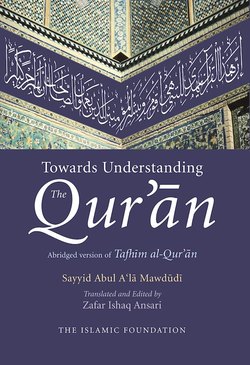Читать книгу Towards Understanding the Qur'an - Sayyid Abul A'la Mawdudi - Страница 196
На сайте Литреса книга снята с продажи.
ОглавлениеAl-Nisa’ 4: 4
If you fear that you will not be able to treat them justly, then marry (only) one,2 or marry from among those whom your right hands possess.3 This will make it more likely that you will avoid injustice.
(4) Give women their bridal- due in good cheer (considering it a duty); but if they willingly remit any part of it, consume it with good pleasure.
of Muslim martyrs, for it tells the Muslims that if they cannot give the orphans their due rights they may marry women with orphaned children.
2 Muslim jurists are agreed that according to this verse the maximum number of wives has been fixed at four. This verse stipulates that marrying more wives than one is permissible on the condition that one treats one’s wives equitably. A person who avails himself of this permission granted by God to have a plurality of wives, and disregards the condition laid down by God to treat them equitably, has not acted in good faith with God. In case there are complaints from wives that they are not being treated equitably, the Islamic state has the right to intervene and redress such grievances. Some people who have been overwhelmed and overawed by the Christianized outlook of Westerners have tried to prove that the real aim of the Qur’an was to put an end to polygamy (which, in their opinion, is intrinsically evil). Such arguments only show the mental bondage to which these people have succumbed. That polygamy is an evil per se is an unacceptable proposition, for under certain conditions it becomes a moral and social necessity. For this reason the Qur’an has allowed those who feel the need for it to resort to polygamy. The Qur’an has expressed its permission of polygamy in quite categorical terms. Indeed, there is not the slightest hint in the Qur’an that could justify the conclusion that it advocates abolition of polygamy.
3 This expression denotes “slave-girls,” i.e. female captives of war who are distributed by the state among individuals when no exchange of prisoners of war takes place.
147
